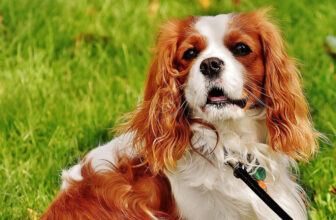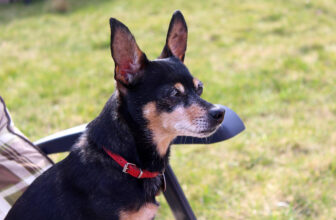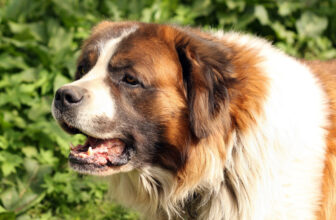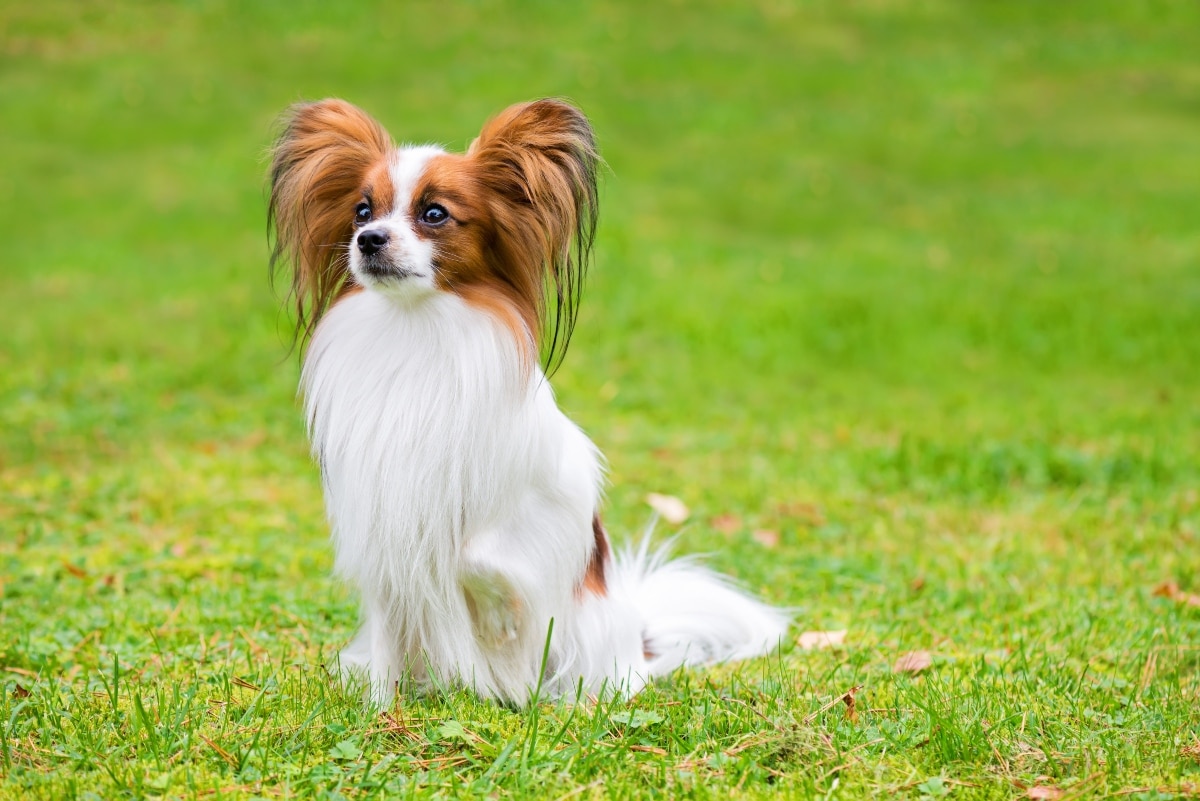
Check out our latest products
Shutterstock
Loud noises can unsettle any dog, but some breeds are especially sensitive, reacting strongly even to the smallest sounds. Fireworks, thunderstorms, or the sudden clatter of a dropped pan can leave them anxious and searching for comfort. This doesn’t mean they’re fragile; their heightened awareness once played an important role in survival. Today, it often shows through trembling, hiding, or staying close to their humans. Recognizing these noise-sensitive breeds helps us create calm, supportive environments where they feel safe and reassured.

Greyhound
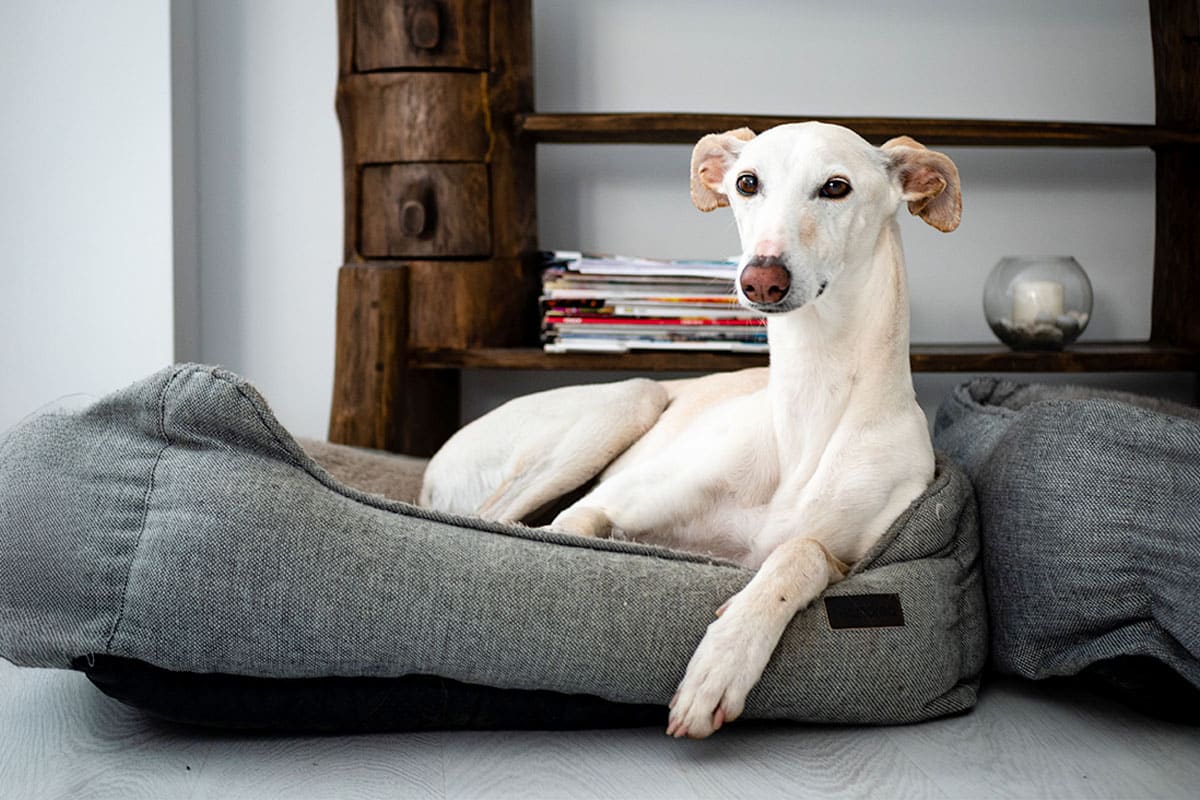
Shutterstock
Greyhounds are gentle, affectionate dogs with quiet temperaments. Their thin skin and low body fat make them physically sensitive, which often extends to sound as well. Loud noises can startle them, and many Greyhounds prefer calm, predictable environments. Despite being known as racing dogs, they thrive in peaceful homes where they can rest without disruption. Their sensitivity is part of what makes them so tender and loving toward their families.
Whippet

Shutterstock
Whippets share much with Greyhounds, including their sensitivity to noise. These slender dogs enjoy peace and quiet, and sudden loud sounds can cause them to seek comfort. Their affectionate bond with their family means they often look to humans for reassurance when startled. A Whippet’s sweet, gentle demeanor makes them a wonderful companion in quiet households. Their love of comfort and calm surroundings highlights how sensitive they are to the world around them.
Border Collie

Shutterstock
Border Collies are highly intelligent and tuned in to their environment. While their sharp minds make them brilliant learners, they can also be easily overwhelmed by loud sounds. Thunderstorms or fireworks can leave them stressed, pacing, or looking for a safe space. Their herding instincts keep them alert to every little change, including unexpected noises. With patience and reassurance, these sensitive dogs can be guided through their fears.
Australian Shepherd
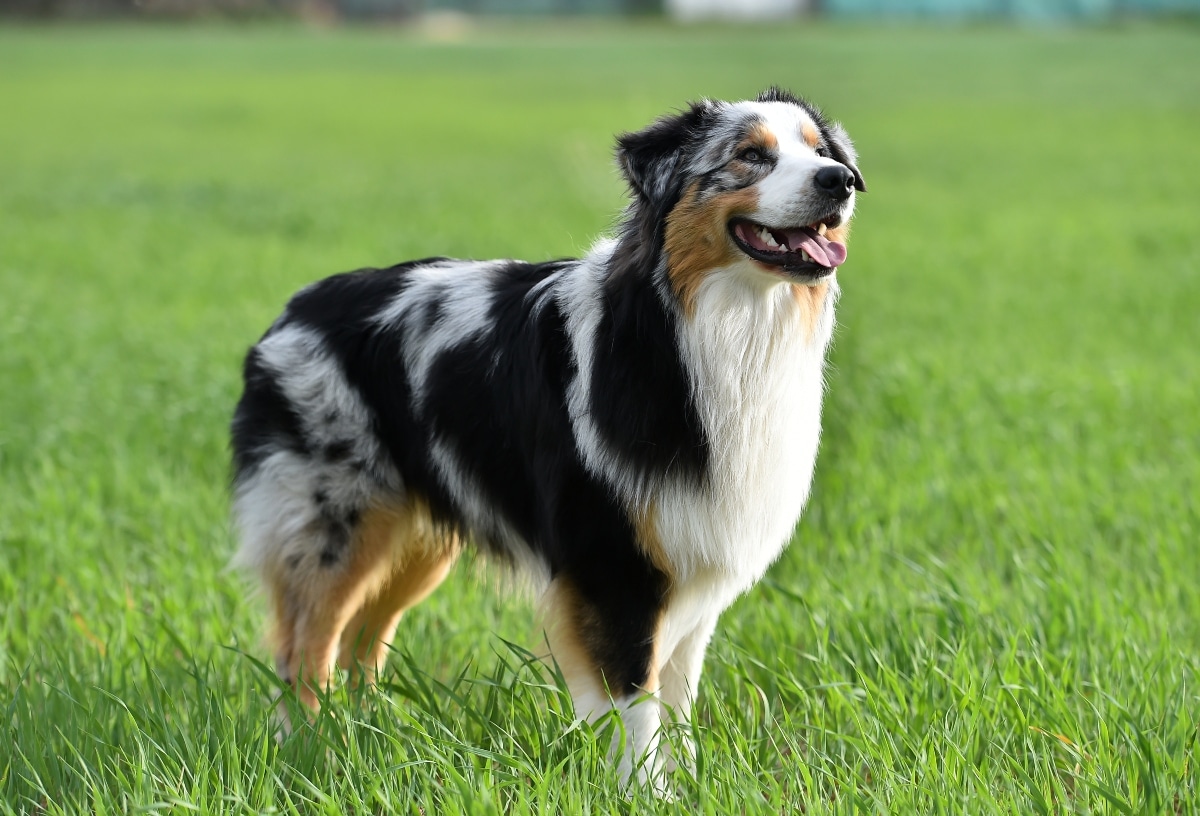
Shutterstock
Australian Shepherds are energetic and loyal, but their strong bond with their family also makes them sensitive. Loud noises often unsettle them, especially if they feel it threatens the safety of their people. Their alert nature as herding dogs makes them quick to react, which can include nervousness around bangs and booms. They may stick close to their humans or hide when the noise becomes too much. This sound sensitivity is balanced by their deep devotion and need for reassurance.
Shetland Sheepdog

Shutterstock
Shetland Sheepdogs, or Shelties, are known for being gentle and affectionate family dogs. Their sensitive nature often extends to loud sounds, which can cause them to become anxious or clingy. Shelties were bred to be alert herders, and that instinct can make them wary of unexpected noises. They do best in households where their need for reassurance is met with patience. Their sweet temperament makes them one of the most emotionally in-tune breeds.
Cocker Spaniel
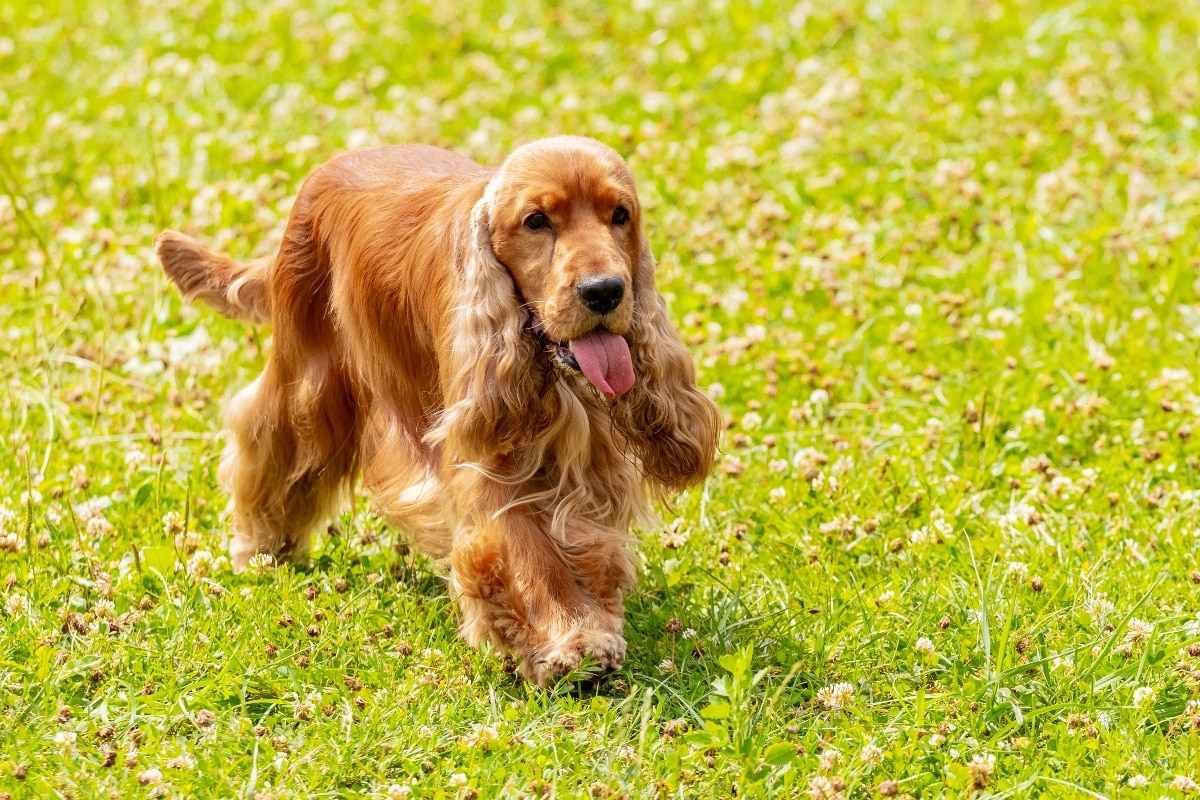
Shutterstock
Cocker Spaniels are affectionate and people-oriented, but they are also known for being sensitive in both temperament and to sound. Loud noises can make them uneasy, and they may retreat to seek comfort. Their big, soulful eyes often reveal their emotional state, making it clear when they feel overwhelmed. A gentle environment and soft reassurance help them thrive. Their sensitivity only strengthens the bond they share with their humans.
Papillon
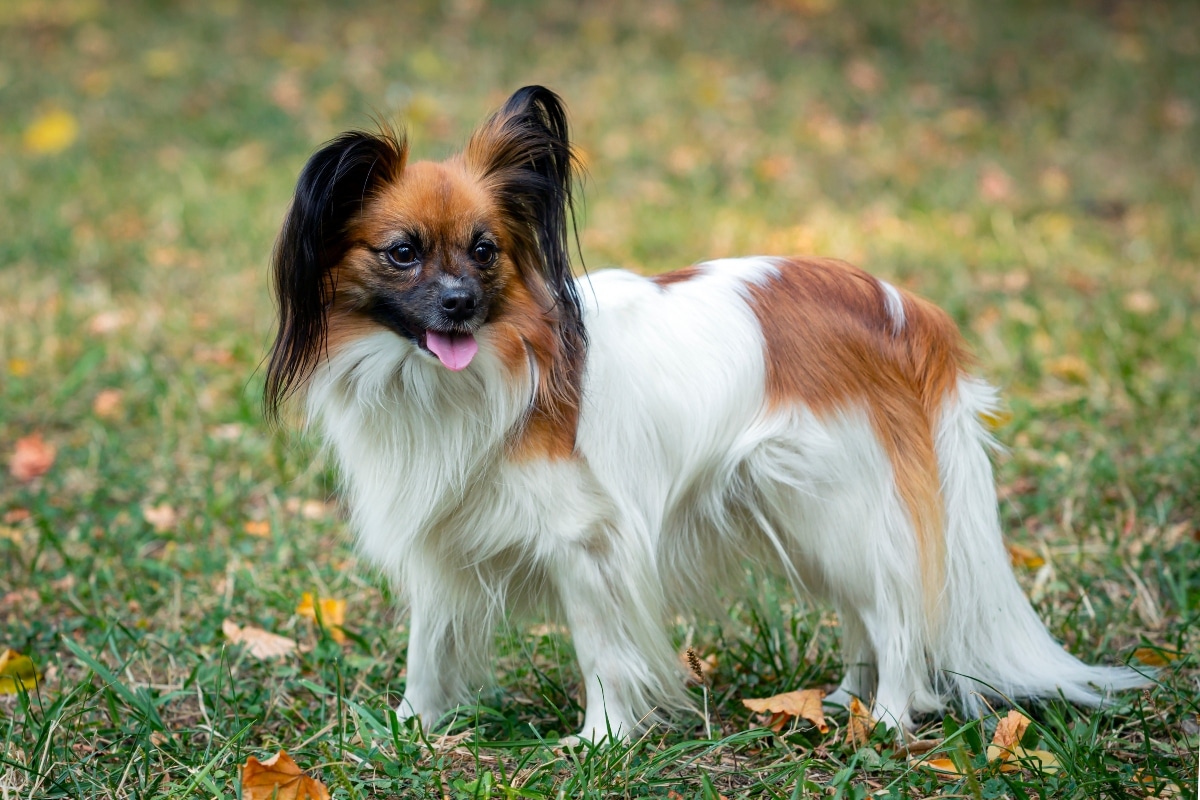
Shutterstock
Papillons are lively little dogs with big personalities, but they can also be easily unsettled by loud sounds. Despite their confidence in many settings, sudden noise often throws them off balance. They may become anxious or seek to hide until the environment feels safe again. Their alert ears and expressive nature make it easy to tell when they are stressed. With a calm and reassuring owner, they quickly bounce back.
Italian Greyhound
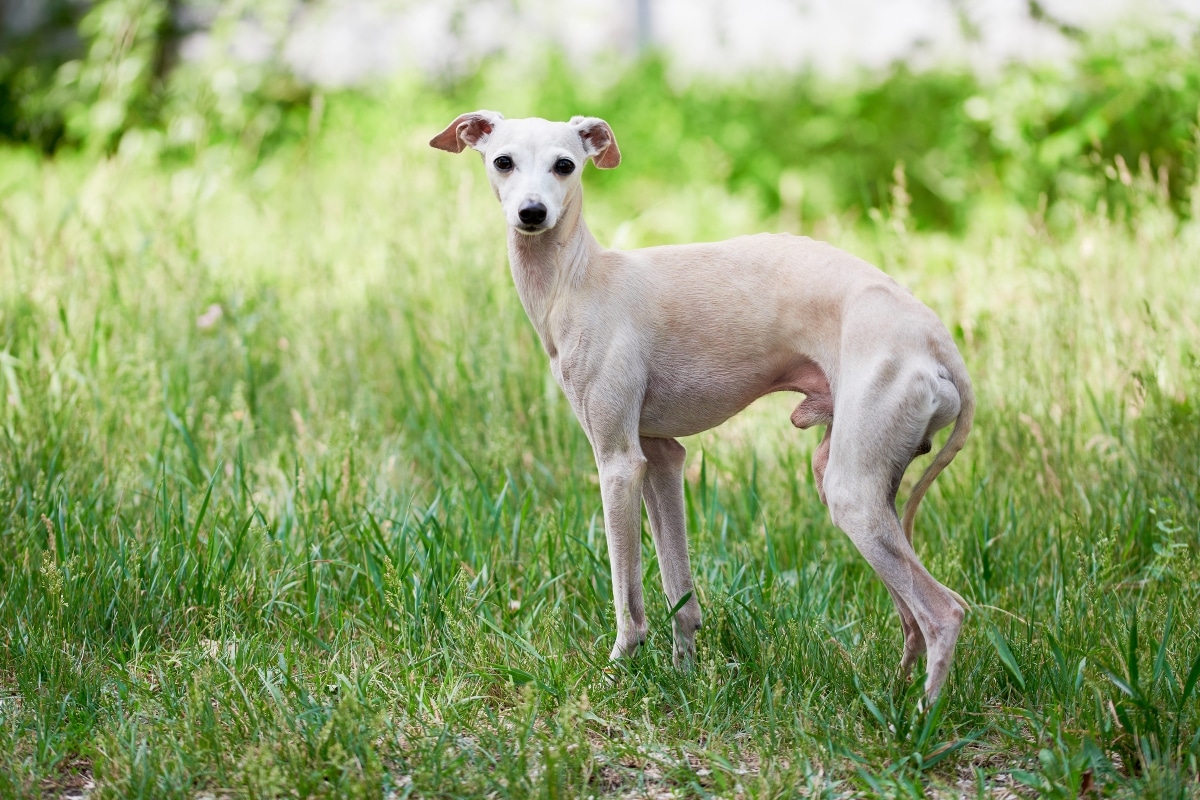
Shutterstock
Italian Greyhounds are delicate, affectionate dogs who thrive on close human companionship. Their sensitive personalities extend to how they respond to loud sounds. Even small noises can make them flinch or look for comfort. They prefer quiet, secure homes where their need for peace can be met. Their sensitivity makes them incredibly loving, as they deeply value the calm and safety provided by their families.
Bichon Frise
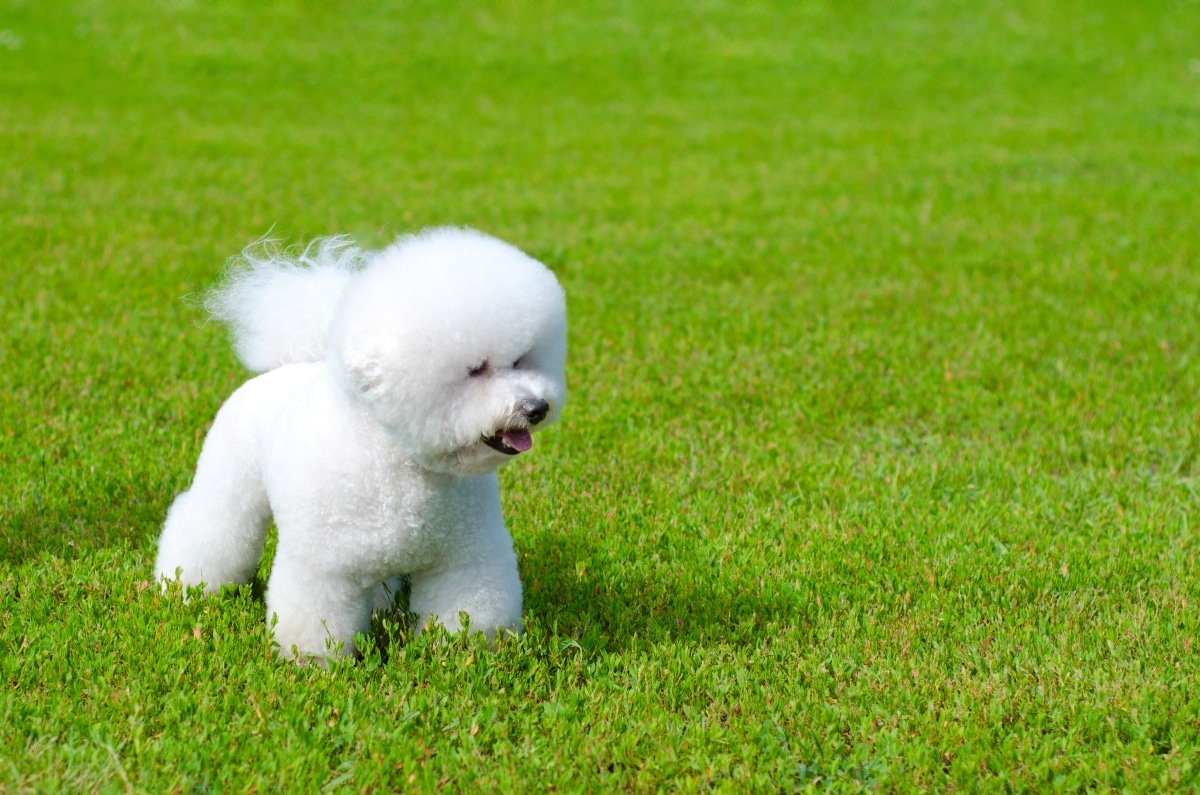
Shutterstock
Bichon Frises are cheerful and affectionate, yet their happy-go-lucky nature can be disrupted by loud noises. They are highly in tune with the emotions of their owners, and loud environments can cause them stress. They may retreat or cling closer to their humans when overwhelmed. Their fluffy, charming appearance hides a heart that beats fast at unexpected sounds. Their sensitivity only enhances the strong companionship they offer.
Shih Tzu

Shutterstock
Shih Tzus are loving and loyal, but they prefer calm and predictable surroundings. Loud sounds often make them nervous, causing them to bark, hide, or seek comfort. Despite their royal history as lapdogs, their sensitivity is part of their charm, making them deeply attached to their humans. They thrive in quieter environments where they can feel safe and secure. Their sensitive hearts make them affectionate and deeply loyal companions.
Vizsla
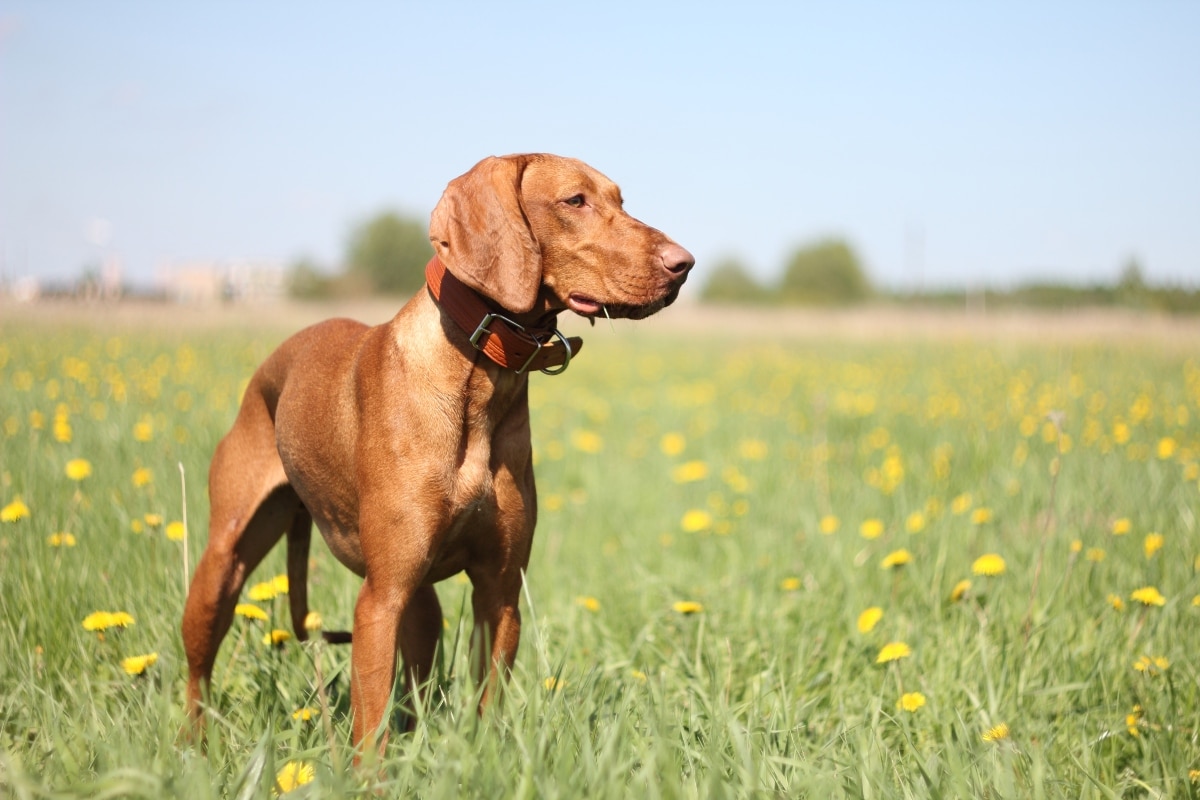
Shutterstock
Vizslas are known as “velcro dogs” for their strong attachment to their families. That closeness also makes them emotionally sensitive, especially to loud sounds. Fireworks, thunder, or even a noisy household can cause them stress. They prefer staying near their people for reassurance and safety. Their sensitivity only deepens their bond, making them loving, loyal dogs who always want to be close.
The World Is Just Too Noisy
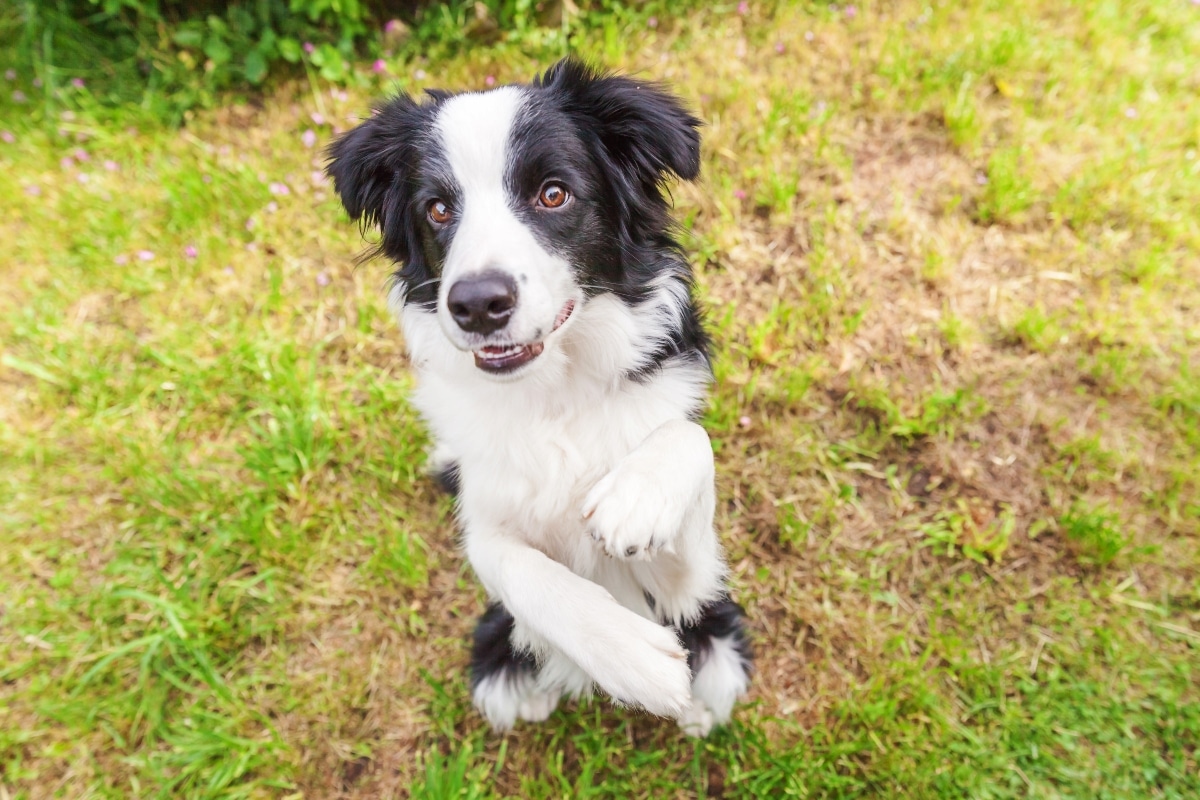
Shutterstock
For sensitive dog breeds, the world can sometimes feel overwhelming when it gets too loud. These pups aren’t weak; they’re deeply aware and highly attuned to their surroundings. Their cautious reactions to sound highlight their emotional intelligence and their reliance on us for comfort. With patience, reassurance, and a calm environment, these breeds thrive as loyal, loving companions. In the end, their sensitivity isn’t a flaw; it’s a reminder of how deeply they feel and how much they trust us to keep them safe.hlm_google_follow_button







![[5G & 2.4G] 2K Indoor Security Camera for Home Security, AI Voice Change for 2-Way Talk, Motion Detection, Night Vision, 24/7 SD Recording/Cloud Storage, WiFi Home Camera, Pet Cam with Phone App](https://i3.wp.com/m.media-amazon.com/images/I/61I2U+sTT3L._AC_SL1500_.jpg?w=300&resize=300,300&ssl=1)



